PUBLICATIONS
As our work progresses, publications are arising from our research themes and cross-cutting projects. We produce working papers, journal articles, evidence submissions to government enquiries, essays, books and book chapters. Subscribe to our newsletter to receive a monthly digest in your inbox. If you want to hear more frequently from us, you can subscribe to email updates from the website directly.

In a new Nature comment piece, CUSP researcher Dr Dario Krpan and colleagues are making the case for integrating psychological and behavioural sciences into the study and implementation of degrowth.
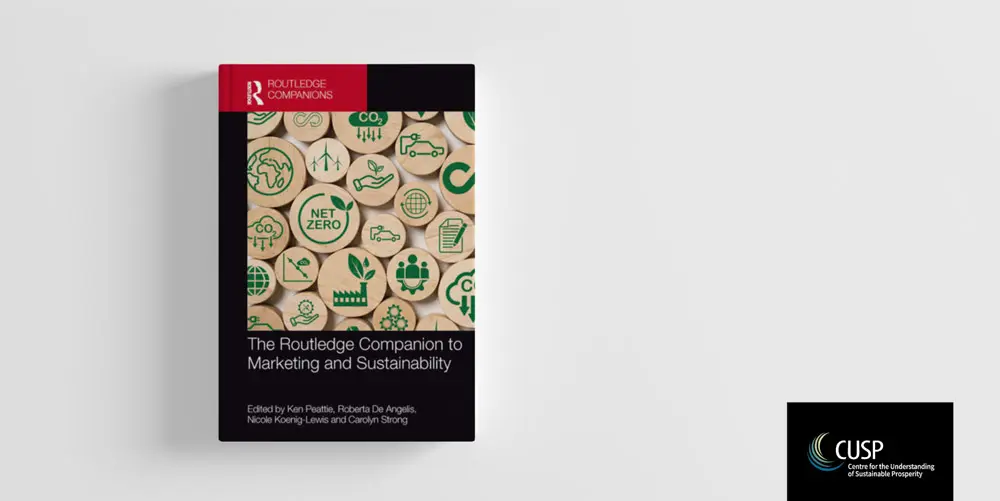
Promoting sustainable lifestyles requires a shift away from marketing strategies that reinforce unsustainable consumption. This book chapter considers how marketing can be reoriented to support more equitable, resilient, and environmentally responsible ways of living.

Ecotherapy is a nature-based approach that supports mental and physical wellbeing while helping reduce environmental impact. This article explores its potential benefits, including improved health outcomes and sustainability, and highlights the need for training and standardised practice for wider adoption.

This review examines how natural and built environments influence psychological flow, identifying links to nature, aesthetics, place, and person–environment fit across 60 studies. Findings suggest flow is shaped by environmental context and place-based meaning.

This study examines how the proportion of self-funded residents in English care homes influences care quality. Findings show that for-profit homes perform better when more residents pay privately, while public and third sector providers deliver consistent quality regardless of funding source—highlighting significant equity concerns in the two-tier care system.

CUSP’s Dr Amy Burnett co-edits new book on rural planning futures, charting the critical societal challenges that are reshaping rural places across the UK and Ireland. Using innovative case studies, the chapters detail how planning for rural places must be guided by the pursuit of social value rather than protecting private interests.

This article explores anxiety as a distinct sociological issue. It looks at how earlier understandings—from existentialism and psychoanalysis—were pushed aside by medicalized psychiatry, and suggests that today’s asset-focused society may help explain rising anxiety.
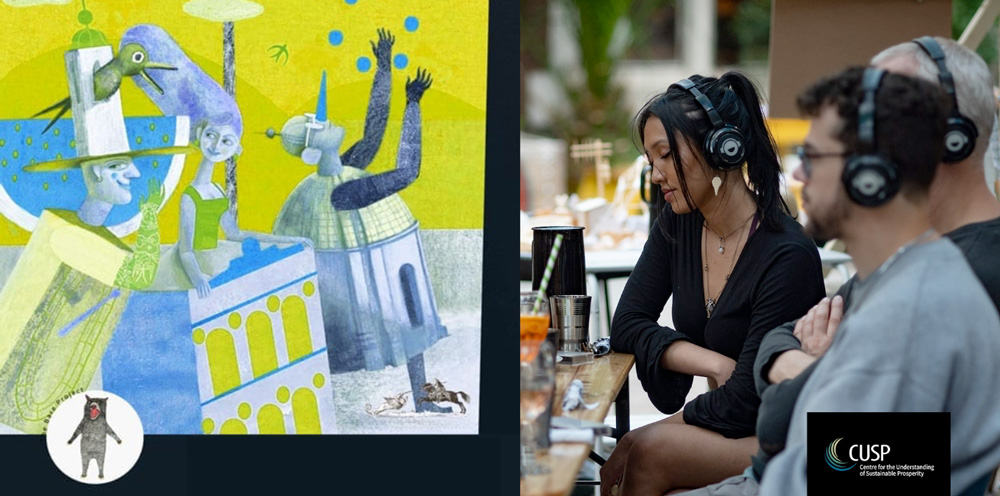
Participatory performance can play a powerful role in democratic renewal by reimagining the public sphere as a space for playful, reflective, and collective citizen engagement. Malaika Cunningham and Marit Hammond show how arts-based approaches foster connection and imagination around systemic issues like climate change and structural injustice.
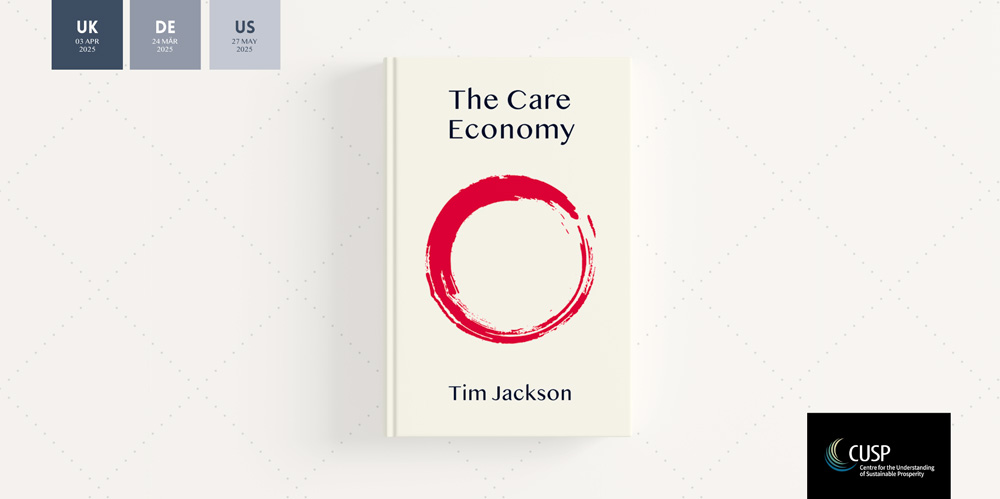
Forthcoming book by CUSP director Prof Tim Jackson, exploring the concept of care in the economy, its undervaluation in markets, and its profound importance for health and society. Dive into the history of medicine, capitalism’s impact on health, and the gender politics of care. Irreverent, insightful and profoundly inquisitive, The Care Economy offers a bold and accessible manifesto for a healthier and more humane society.

New research by Amy Burnett and Fergus Lyon explores how cooperative governance models can help farmers retain control over nature recovery initiatives, preventing corporate capture. Drawing on insights from the Environmental Farmers Group and the agri-food sector, the study highlights the role of collaboration in emerging natural capital markets.
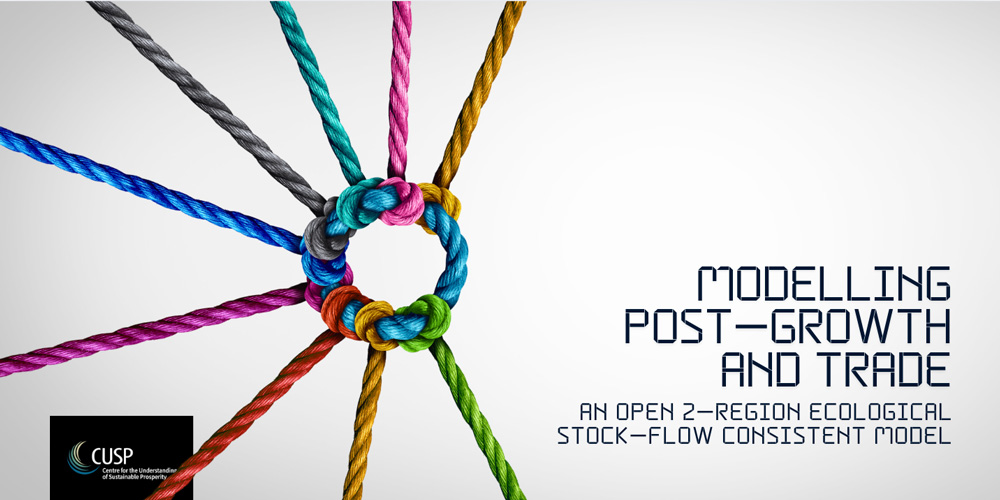
This working paper by Dario Leoni, Andrew Jackson and Tim Jackson describes the post-Keynesian SFC PADME Model which explores two regional economies linked by international trade and financial flows, each made up of seven sectors. The theoretical framework underpinning the model is that of ecological economics.

This study explores the relational contexts shaping youth wellbeing and consumption in urban spaces, drawing on insights from 332 young people across seven cities. Findings highlight the role of family, community, and public spaces in shaping low-carbon lifestyles and propose ways for local governments to foster sustainable urban development.

As part of his PhD research with CUSP, Dr Mark Ball spent time in Stoke-on-Trent playing in a darts league and thinking critically about culture, place, and politics. This style of research is often described as ethnography; where the researcher immerses themself in a scene to better understand it. What is presented here is an argument that draws from those experiences.

How can publicly funded research foster a sustainable and fairer food system? A study by CUSP and Sussex University, part of the UKRI-funded Transforming UK Food Systems programme, examines how social innovation can address diet-related ill-health and environmental challenges.

A comprehensive new review by leading experts in the sustainability science field is challenging the long-held assumption that economic growth is necessary for societal progress. Published in The Lancet Planetary Health, this paper explores the rapidly advancing field of postgrowth research and presents a compelling case for prioritising human wellbeing and ecological sustainability over endless economic expansion.

This paper develops a stock-flow consistent, input-output model to simulate risks, opportunities, and non-linear dynamics associated with green investment, energy returns, financial risks, and various energy transition pathways to net zero.
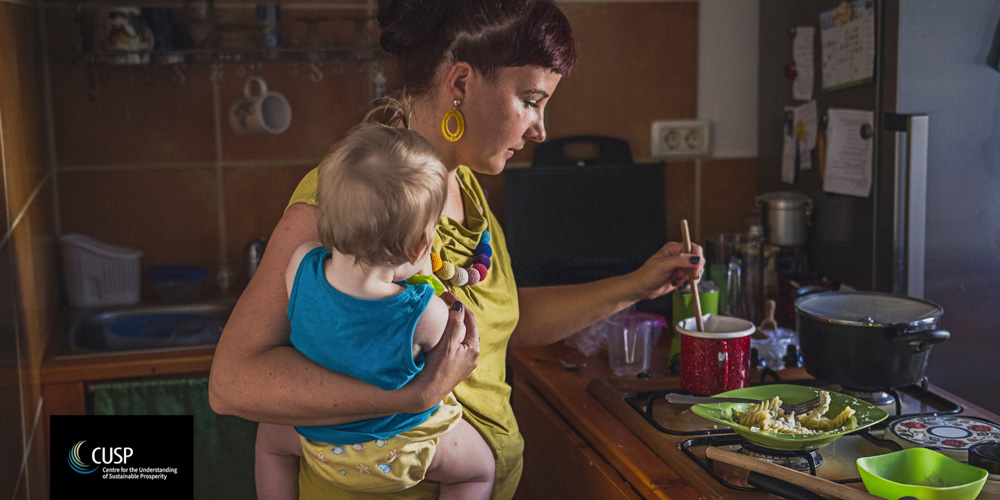
Households play a key role in sustainability transitions but remain underexplored. This longitudinal study shows how motherhood shapes sustainable food practices through relational, flexible approaches prioritizing care, thrift, and time management. It calls for holistic, practical discourses that support sustainable everyday practices of care.

This paper explores how small fashion entrepreneurs challenge the mainstream industry’s focus on novelty and growth, prioritising sustainability through virtue-driven practices. Using data from 27 UK-based entrepreneurs, it examines ‘postgrowth entrepreneurship’ as a pathway to a more sustainable fashion industry.

Simon Mair explores energy-capital relations through Adam Smith’s The Wealth of Nations, showing how capital drives energy use and efficiency for profit. He argues low-carbon transitions require investments tied to challenging the profit motive.

In reply to a recent opinion piece in the Financial Times, Prof Peter A. Victor challenges the relevance of David Ricardo’s principle of comparative advantage in today’s world of mobile capital, arguing that it should not be employed to justify regressive environmental and social policies.

The article explores how modern capitalism’s shift from labour to assets creates a legitimation crisis of contemporary wealth-based capitalism, leaving wealth elites grappling with meaning, purpose, and survival in a system devoid of traditional moral justification.
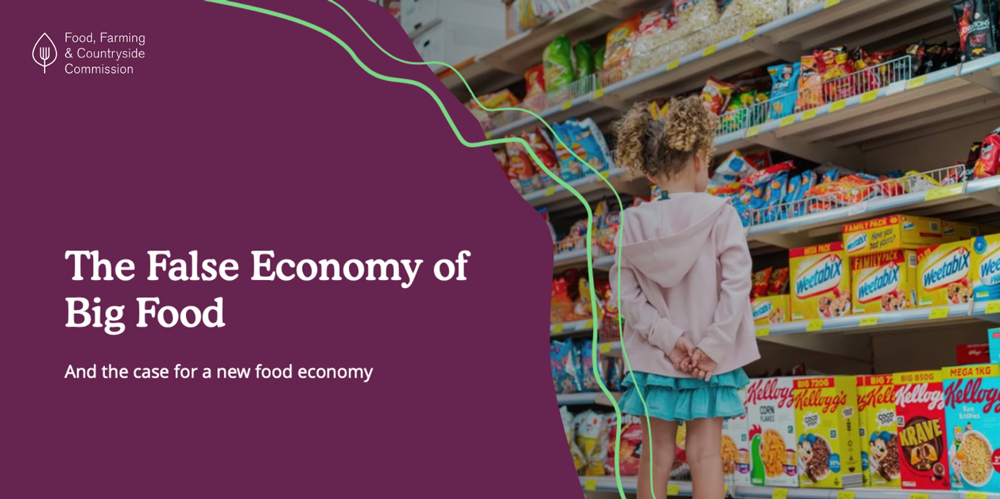
New analysis commissioned by FFCC has found that the costs of Britain’s unhealthy food system amount to £268 billion every year – almost equivalent to the total annual UK healthcare spend. The report by CUSP co-director Tim Jackson provides the first comprehensive estimate of the food-related cost of chronic disease, caused by the current food system.
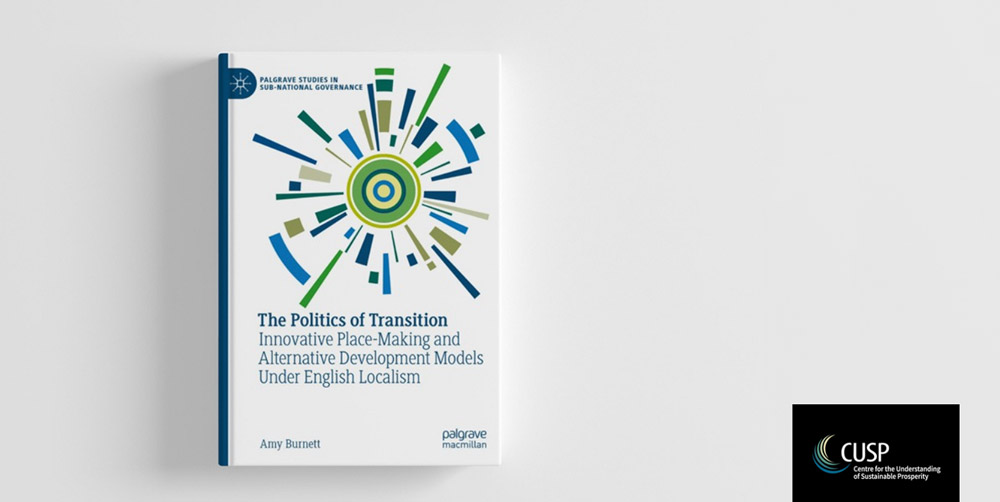
Book by Amy Burnett, exploring planning reforms and alternative local governance, using Frome, Somerset, as a case study. It examines sustainable development under localism and community-based futures, offering insights into placemaking, politics, and public policy.

This report focuses on how to finance the green transition of established SMEs in England. Prior demand-side research demonstrated that surveyed SME access to debt finance for the ‘green transition’ is uneven across the UK and that smaller, less resourced SMEs in more remote locations from banking centres may be most disadvantaged.

This paper explores the crucial issue of financing early-stage green startups, focusing on the types of investors, financial models available, challenges these startups face, and how the green finance ecosystem can better support them.

The paper evaluates system dynamics energy models, investigating how they capture key characteristics of socio-technical transitions, and recommending the creation of a “policy navigator” to map and guide policy testing within sustainability transition frameworks for better decision-making.
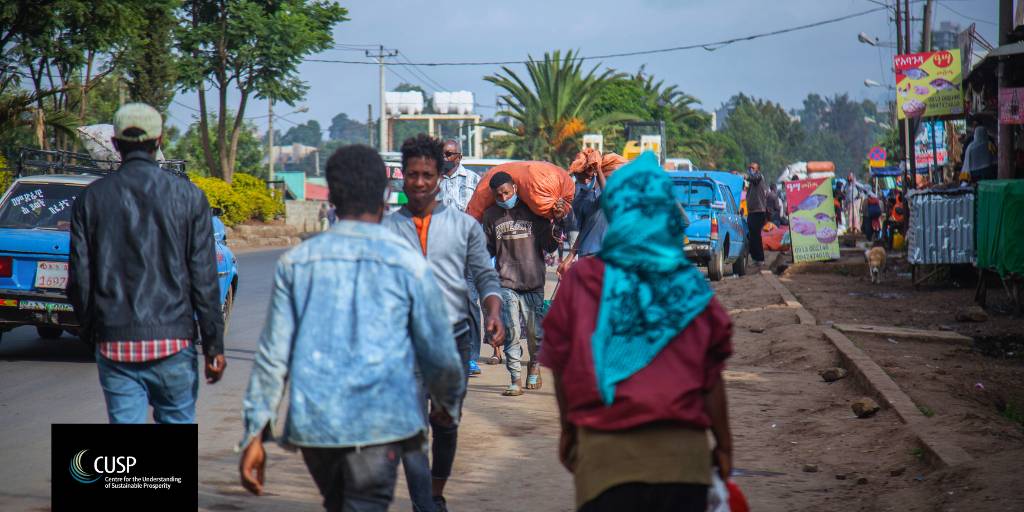
This study provides an empirical assessment of how effective the WHO’s Global Monitoring Framework for non-communicable diseases (NCDs) has been in improving COVID-19 resilience in low-income countries. Our findings suggest that future global health policies should focus on the link between NCDs and infectious diseases, especially for vulnerable populations.
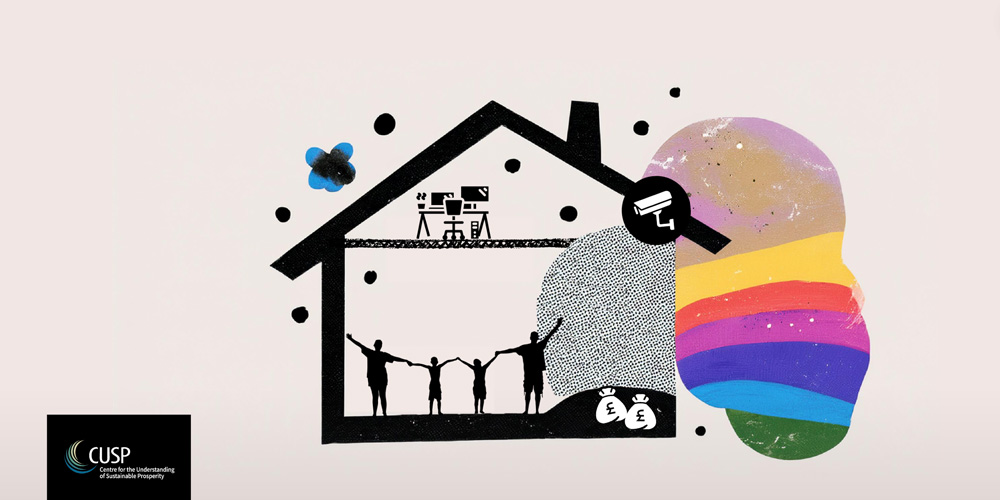
Shaped by austere fiscal policy, loose monetary policy, and sustained house-price inflation in stagnant economies, Anglo-American economies have developed a new ‘domestic regime’. Along with digital platforms, a flexible labor market, and an undervalued social reproductive sector, these factors have transformed capitalism.

The Social Enterprise Food Systems project has been exploring how social enterprises can introduce innovations for healthy and sustainable food. We are delighted to launch our Good Practice Guide, which draws on our research, the experiences of our social enterprise partners involved in the project.

Democratic enterprise and economic governance are crucial for addressing societal challenges where hierarchical models fail. This paper examines collective capabilities in 12 mutual social enterprises, exploring how interactions foster collaboration and support organisational democracy.

The increased private provision of publicly funded health and social care in the UK is a highly contentious topic, with policies promoting outsourcing to reduce costs and improve quality. However, evidence suggests that marketisation often fails to achieve these objectives, indicating the profit motive is difficult to align with public care goals.

This paper shows that countries with robust health-related policy targets aimed at reducing non-communicable diseases (NCDs) experienced significantly lower mortality rates during the first year of the Covid-19 pandemic.

This commentary responds to a recent article purporting to identify ‘limits to degrowth’. This paper clarifies and sets in context the tensions between growth rates and decoupling rates on which the contested argument is based, disputing the claim that growth is the best way to achieve high rates of decoupling.

Modern economies rely on economic growth for stability and prosperity, but this dependence is ecologically unsustainable. Understanding growth dependency is crucial. We propose a sector-led framework to transform these reliances and disrupt their inevitability.
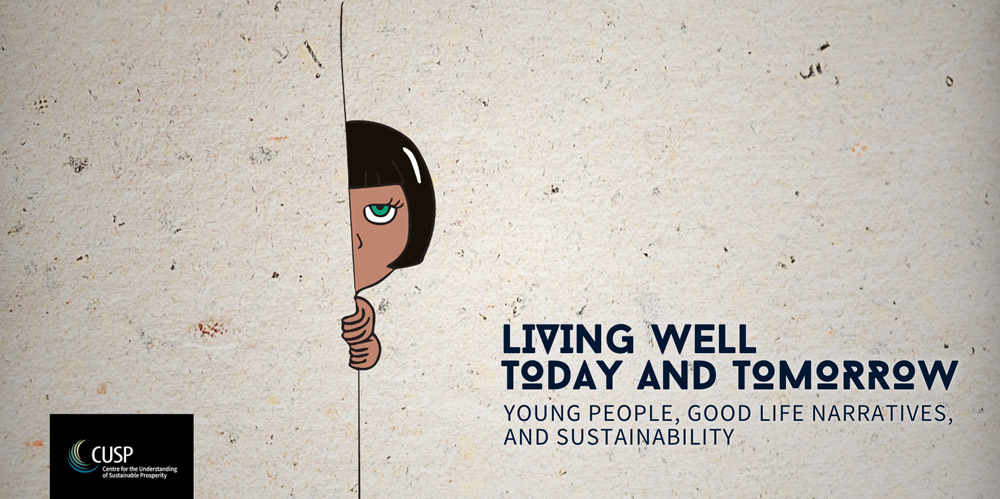
In this working paper, we explore young people’s use of shared social understandings to describe what is important in their present lives, to envision their futures, and to respond to the challenges they identify to the realisation of their good lives.

This commentary, by CUSP researcher Peter A. Victor in the latest C40 Cities journal, reflects on his extensive research of the late Herman Daly’s life and work. A concise summary tailored for policymakers.
